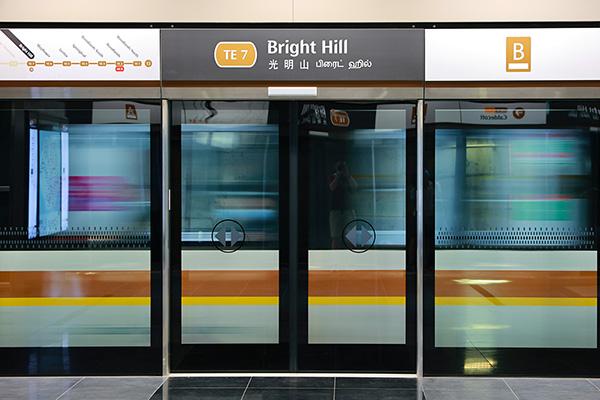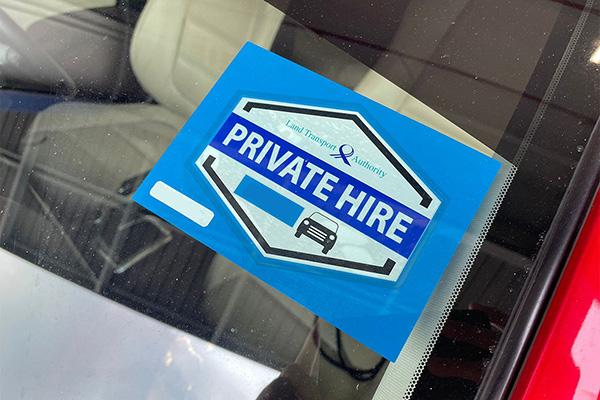Ride-hailing firm Go-Jek to launch in Singapore
25 May 2018|3,068 views
Indonesian ride-hailing start-up Go-Jek put an end to several months of speculation yesterday when it confirmed it would expand into four markets in the region, including Singapore, as part of a $671 million growth plan.

Its statement also said that it aims to take its multi-service business model eventually into the four countries. Go-Jek's services go beyond providing just private-hire vehicles in Indonesia. They include a variety of concierge services, such as food and grocery deliveries as well as cleaning and massage services.
The company's expansion will pit it against Singapore-based Grab, the sole major ride-hailing operator in the region following Uber's exit from South East Asia in March. Grab operates in eight countries: Singapore, Malaysia, Indonesia, Thailand, Vietnam, Cambodia, Myanmar and the Philippines.
Go-Jek President Andre Soelistyo said the company has been looking at overseas expansion for some time, and its latest round of fund-raising has put it in the strongest possible position to achieve its ambition. Investors that have provided funds include American tech giant Google, Singapore's Temasek Holdings and China's Tencent.

The company's Chief Executive, Mr. Nadiem Makarim, said it would would seek local partners in each country to benefit from their deep and varied market knowledge.
The Land Transport Authority said it had reached out to Go-Jek regarding local regulations, such as requiring drivers to be licensed and cars to have private-hire decals affixed.
Last month, Go-Jek was reportedly in talks with Singapore taxi giant ComfortDelGro on a possible partnership, but both have declined to comment.
Since Uber's departure, firms like Singaporean carpooling platform Ryde have announced plans to enter the private-hire sector. But they are unlikely to rival Grab in a big way because of their relatively small size, said observers. Go-Jek's entry, however, would bring some competition into the Singapore market, said Mr. Ang Hin Kee, Executive Adviser to the National Private Hire Vehicles Association.
But National University of Singapore transport lecturer Lee Der Horng noted that Grab has an edge, being well-established in the Singapore market. Before Uber left, Grab and the U.S.A-based company competed fiercely in Singapore to gain market share, giving passengers big discounts and drivers generous incentives.
Earlier this month, Grab said it is rolling back the incentives. But Dr. Lee believed Go-Jek's entry could see the return of the incentives as both companies battle for commuters and drivers. However, he cast doubt on the prospect of Go-Jek's other services, such as food and grocery delivery. Noting that several businesses already offer them, he said, "How many such companies is the sector really able to accommodate?"
Indonesian ride-hailing start-up Go-Jek put an end to several months of speculation yesterday when it confirmed it would expand into four markets in the region, including Singapore, as part of a $671 million growth plan.

Its statement also said that it aims to take its multi-service business model eventually into the four countries. Go-Jek's services go beyond providing just private-hire vehicles in Indonesia. They include a variety of concierge services, such as food and grocery deliveries as well as cleaning and massage services.
The company's expansion will pit it against Singapore-based Grab, the sole major ride-hailing operator in the region following Uber's exit from South East Asia in March. Grab operates in eight countries: Singapore, Malaysia, Indonesia, Thailand, Vietnam, Cambodia, Myanmar and the Philippines.
Go-Jek President Andre Soelistyo said the company has been looking at overseas expansion for some time, and its latest round of fund-raising has put it in the strongest possible position to achieve its ambition. Investors that have provided funds include American tech giant Google, Singapore's Temasek Holdings and China's Tencent.

The company's Chief Executive, Mr. Nadiem Makarim, said it would would seek local partners in each country to benefit from their deep and varied market knowledge.
The Land Transport Authority said it had reached out to Go-Jek regarding local regulations, such as requiring drivers to be licensed and cars to have private-hire decals affixed.
Last month, Go-Jek was reportedly in talks with Singapore taxi giant ComfortDelGro on a possible partnership, but both have declined to comment.
Since Uber's departure, firms like Singaporean carpooling platform Ryde have announced plans to enter the private-hire sector. But they are unlikely to rival Grab in a big way because of their relatively small size, said observers. Go-Jek's entry, however, would bring some competition into the Singapore market, said Mr. Ang Hin Kee, Executive Adviser to the National Private Hire Vehicles Association.
But National University of Singapore transport lecturer Lee Der Horng noted that Grab has an edge, being well-established in the Singapore market. Before Uber left, Grab and the U.S.A-based company competed fiercely in Singapore to gain market share, giving passengers big discounts and drivers generous incentives.
Earlier this month, Grab said it is rolling back the incentives. But Dr. Lee believed Go-Jek's entry could see the return of the incentives as both companies battle for commuters and drivers. However, he cast doubt on the prospect of Go-Jek's other services, such as food and grocery delivery. Noting that several businesses already offer them, he said, "How many such companies is the sector really able to accommodate?"
Latest COE Prices
May 2025 | 1st BIDDING
NEXT TENDER: 21 May 2025
CAT A$103,009
CAT B$119,890
CAT C$62,590
CAT E$118,889
View Full Results Thank You For Your Subscription.



















